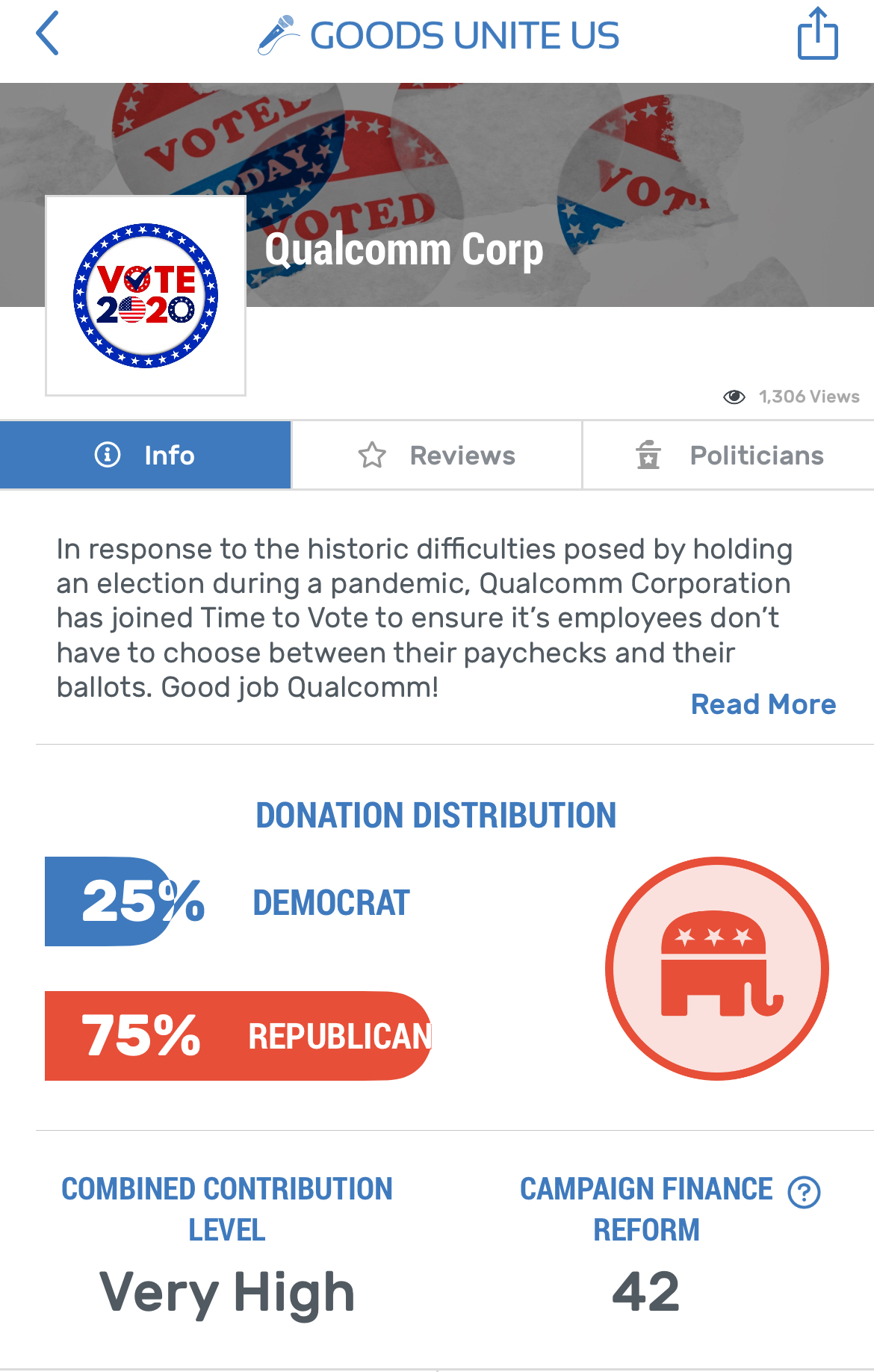The marketing and advertising and sales teams took over management from the engineering team, and decided to cut all the corners. It’s a classic tale at this point, same thing happened to Boeing and Apple and Google and etc. It’s why everything sucks nowadays.
It’s not just the big tech, some startups are the same because they’re vying for VC cash and that’s the best way to do it
There might be things that Apple is stagnating on, but silicon and ARM CPU transitions definitely ain’t one of those things. The rest of the industry is scrambling to catch up with them asap.
And? Linux was on ARM since about beginning.
What relevance does Linux have in this specific context? Does Linux have a marketing team? Does Linux compete on a hardware level with Apple? Is there a Linux corp we haven’t heard about that’s working with some chip manufacturer we also haven’t heard about in order to create ARM processors that can compete with Apple silicon? No? Maybe don’t shoehorn Linux into everything regardless of relevance, especially not in such a lane way.
Because compared to other OSes Apple just catches up.
Does Linux have a marketing team?
No marketing team = no enshittification by marketing
Is there a Linux corp we haven’t heard about that’s working with some chip manufacturer we also haven’t heard about in order to create ARM processors that can compete with Apple silicon?
So you agree that transitioning to ARM isn’t impressive. Now it’s time to show you that making processors isn’t something only oh-so-great Yoppl can do. Linux Foundation has its own chip designing subsidiary - CHIPS Alliance. They designed stuff like vector coprocessor, RISC-V core(and older VeeR cores), maintains Chisel HDL and many smaller projects. And I only named what only Linux Foundation does, community and other organizations(including chinese T-head) do even more.
Just ask Apple, they’ll tell you so.
Don’t trust any silicon manufacturer’s marketing department. Let the processing and battery life benchmarks and real world tests do the talking.
AMD’s CPUs are faster and more power efficient on the same process node. (i.e. 5nm vs 5nm)
https://www.cpu-monkey.com/en/compare_cpu-amd_ryzen_ai_9_hx_370-vs-apple_m2
Apple just has a big budget to buy out TSMC process nodes a generation early, their designs and architectures aren’t actually faster or more power efficient than AMD’s x86 cpus.
https://www.macrumors.com/2023/02/22/apple-secures-tsmc-3nm-chips/
Am I blind? I don’t see any information in there to draw any conclusions about power efficiency. The little information that I do see actually seems to imply the apple silicon chip would be more efficient. Help me out please?
24 threads at 2.00 GHz vs. 8 threads at 0.66 GHz with a 40% difference in TDP. The AMD chip may draw more power, but has much higher performance. Simplifying things, it can perform 9x the operations as the Apple silicon for only 1.4x the power draw.
That… is very naive and inaccurate approach. You can’t use frequency and core counts to guesstimate performance even when the chips in question are closely related. They’re utterly useless when it’s two very different chips that don’t even use the same instruction set. But anyway, there are benchmarks in that page and they clearly show that the amd chip is clearly not performing 9x the operations. It is obviously more powerful, though not nearly by that much.
I desperately want something to start competing with apple silicon, believe me, but knowing just how good the apple silicon chips are from first hand experience, forgive me if I am a little bit sceptical about a little writeup that only deals in benchmark results and official specs. I want to read about how it performs in real life scenarios because I also know from experience that benchmark results and official specs alone don’t always give an accurate picture of how the thing performs in real life.
Microsoft is on the same path, yay!
If you’re talking about the lastest gen desktop CPUs, they just clocked them too high.
This has been an ongoing problem ever since, like, Ivy Bridge/the 3000 series… and yes, probably has to do with management and marketing decisions tbh, so they can be 2% ahead of AMD in some stupid benchmark. AMD is guilty of this too, and you can see what “sanely” clocked chips look like with their X3D series.
That is absolutely not the only issue. They had oxidation issues in two successive generations of consumer CPUs, likely knew about it, and sold them anyways. They’re trying to get out of reimbursing, replacing, or compensating anyone for the fucked cores, and as a direct result, a massive class-action suit is starting to roll.
Better them than accountants and lawyers.
Large amounts of greed, corruption, and complacency.
The company had always been run by engineers that came up from chip fab. Then they fired both the CEO and the head of fab for sexual harassment.
Then they make the CFO with a MBA the new CEO. A year or two latter and chip design is having problems and fab is falling behind.
The more I see MBAs taking c-suite positions, the quicker the company collapses. Seen it more than six times now in person, and countless in the news.
I wonder how long before they notice.
Sounds similar to what happened to Boeing. Once ran by engineers now ran by people suckling the teat of board members. Quality goes down, profits go up for these assholes.
Ah, similar to Boeing’s problems, minus the sexual harassment.
And
assassinationssuicidesSuicide by six headshots
They mistargeted in V.A.T.S.
This is the handiwork of highly paid executives.
Mobile strategy, I.E. lack thereof.
Intel was once a Silicon Valley leader.
Well, any specific stuff that Intel has done recently aside, Silicon Valley has been more about software, not hardware, for quite some years.
Intel is a hardware company.
Greed?
🌈 shareholders 🌈
Capitalism
Poor practices. They focused on shorr term gains over quality.
Probably bureaucracy. Also an inability to pivot even when things make no sense. Everything is a giant freight train that has very little ability to change direction or stop.
Oh and of course a healthy taste of not being transparent or honest.
Source: I used to work there years ago.
Just watched a video on the failure of windows phone, they went from 34% market share ( world top 1) to 1.4% in 5 years. Then they recover a little bit to 3%, just to drop to 0.4% 5 year later and then completely dead 2 years after.
Never at any point in time did the Windows phone reach 34% market share or anywhere near #1. I’m not even sure Windows phone had a bigger share than BlackBerry at the time.
Their peak market share was 3.4%, not 34%. It failed because virtually nobody bought them.
It was 34% in 2006, Window phone 6 is still “windows phone”. It was BEFORE the iPhone. Windows phone doesn’t mean just the Lumia.
That’s not “Windows phone” that’s “Windows mobile”, the precursor to Windows Phone, which didn’t release until 2010.
Shifting to Windows Mobile now, in 2006, Windows Mobile 6 had only about 10% market share, behind both Palm OS and Symbian, the latter of which held a whopping 60%. I looked further back in time and I do see that Windows Mobile had a 34% market share in 2001, however it was again dwarfed by PalmOS. It’s also worth it to note that that 34% wasn’t comprised mainly of cellphones, but rather barcode scanning guns in warehouses and logistics, because you could make custom applications for them with relative ease. There are still warehouses today that use those old windows mobile scanner guns.
The only piece of Microsoft tech that I actually loved, so sad it flopped. I had two Windows phones, beautiful devices. Gorgeous screens, great design, the Windows 8 tiles unironically were fantastic on mobile.
Everything was butter smooth, I never had them crash or freeze up. Zeiss cameras, they took great pictures.
But there were almost no apps for them. It was basically the Microsoft mobile office suite, and a few random ports like Evernote. Nobody bought them because there was zero ecosystem for them.
I think they’ll recover. Letting them fail would be a national security issue.
Oh they won’t die. The question is will they recover to their old market position, will they downsize and be second fiddle to AMD but remain generally profitable, or will they have a slow managed decline like IBM?
Comfort zone and believed in Microsoft’s talk that the market of the future would be desktops, but Apple came and said: Not today
Apple killed Blackberry and Intel
You’re next republican-lead Qualcomm

Nice typo in their propaganda. Couldn’t quite figure out contractions versus ownership.
apple also killed productivity *lol but that has nothing to do with blackburied or … *who the f is intel?
server: arm handy: arm desktop: amd laptop: amd
and happy with it, left intel 20years ago for at that time already obvious reasons why other companies products are better.
work notebook: impediment with a bitten fruit logo on it. i am very unhappy with its lack of stability/deterministic behaviour on even veery low basic things, and guess what, it also has an intel cpu… yeah (f**k), i unwillingly try to use that intel crap for work.
apple might have killed intel, but got infested with releasing crappy products on that path. what a gain!!! 🤦♀️
i’ld rather let a zombie go on walking than getting zombiefied while trying to stop it… but tbh its “only work” that is slowed down by the fruitlogozombie (well, am i zombiefied already?) at least that “bitten” part of its logo from now on makes fully sense to me 😁 😂
I’ve only watched this from a great distance but what I saw was: Intel didn’t actually manufacture the chips. That was all TSMC. So Intel’s main thing was chip design. And their designs were all about making the transistors smaller. Around 3nm they started running into physical limits. Competitors started out-innovating them with things like GPU deigns and ARM based chips. End of story. They had their time. They ran x86 into the ground and they are fucking done. They would have had to do 5 or 6 things differently to stay on top, and they did none of those.
Intel didn’t actually manufacture the chips.
The chips with the oxidisation issue were manufactured by Intel at their Arizona fab plant.














